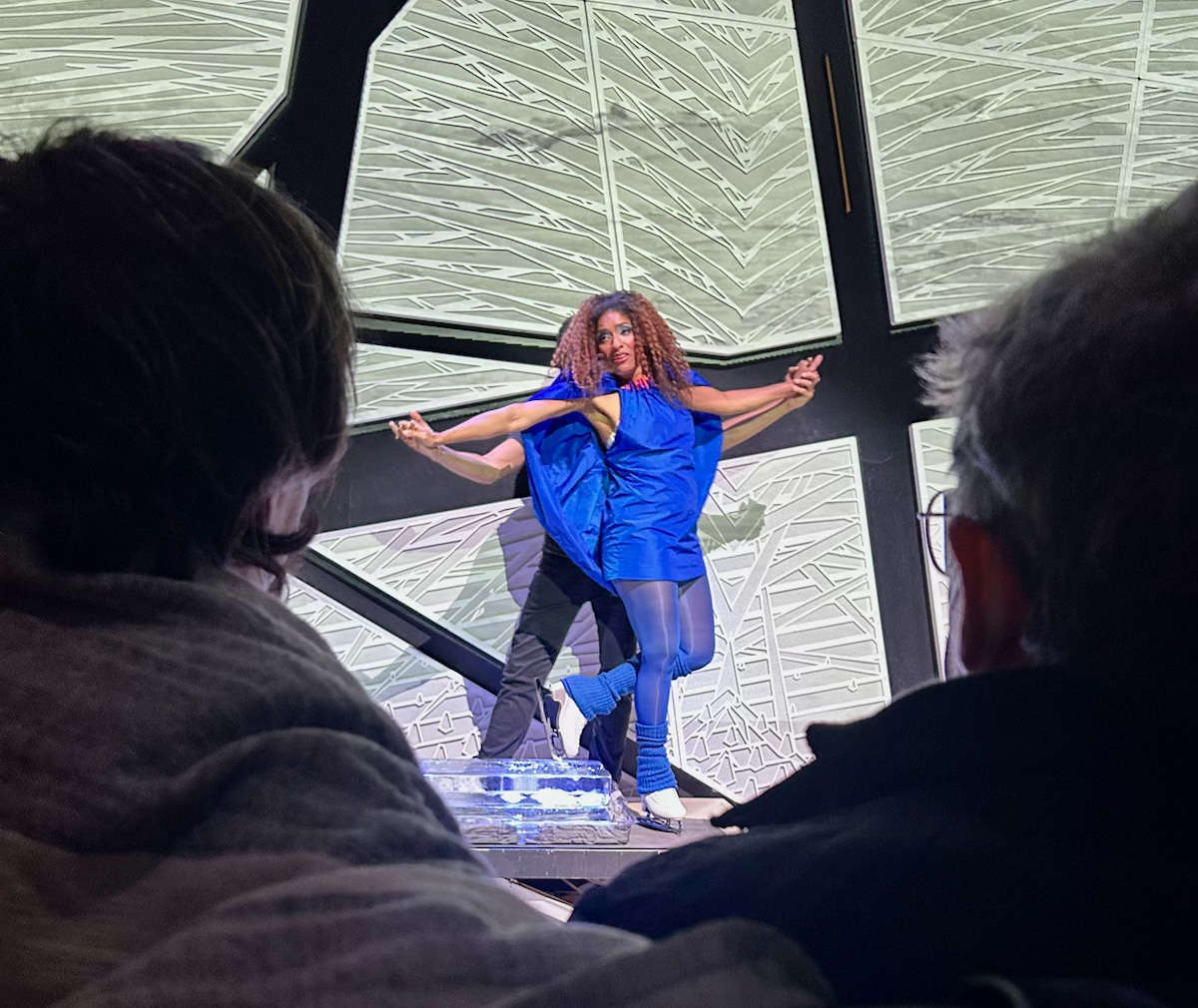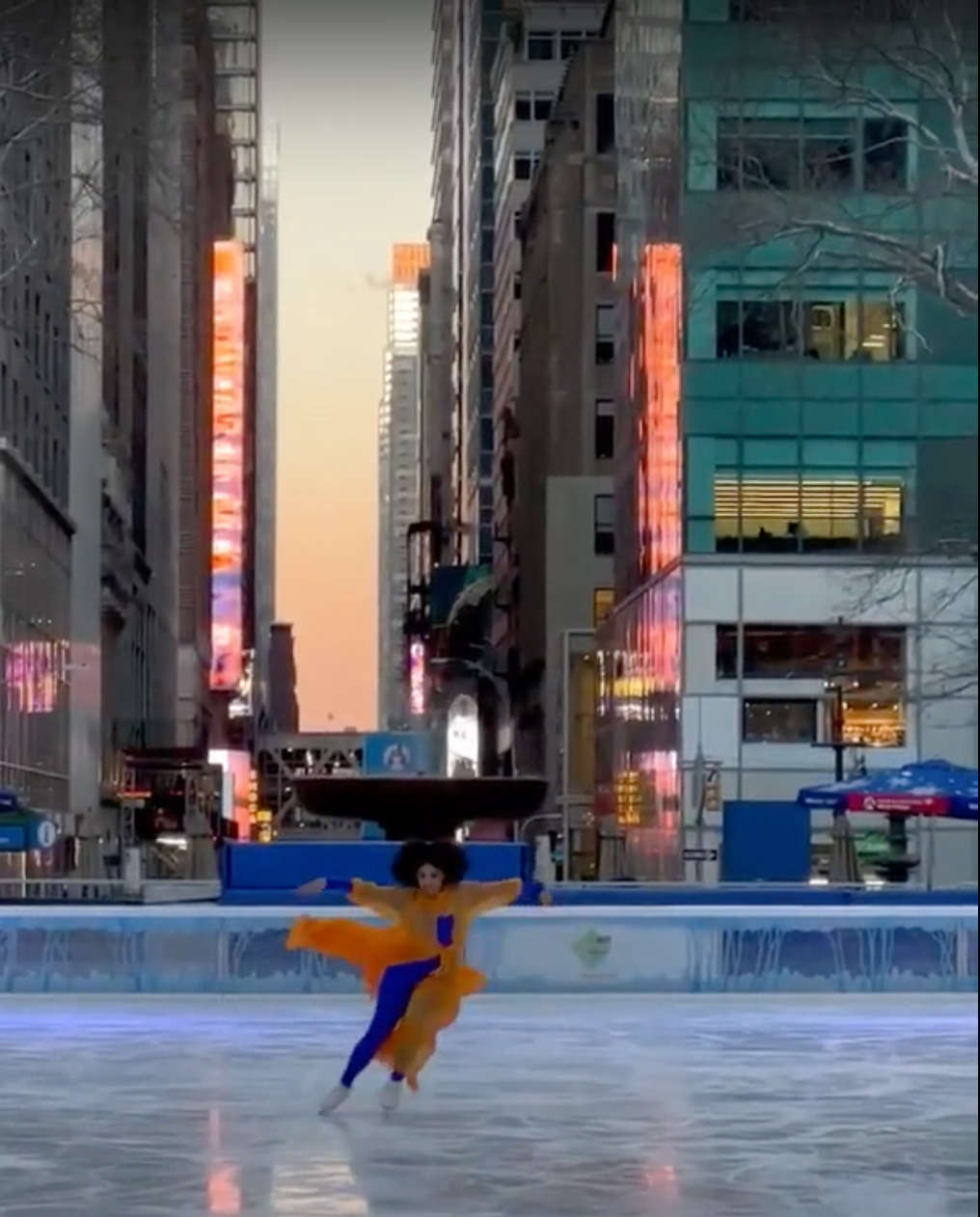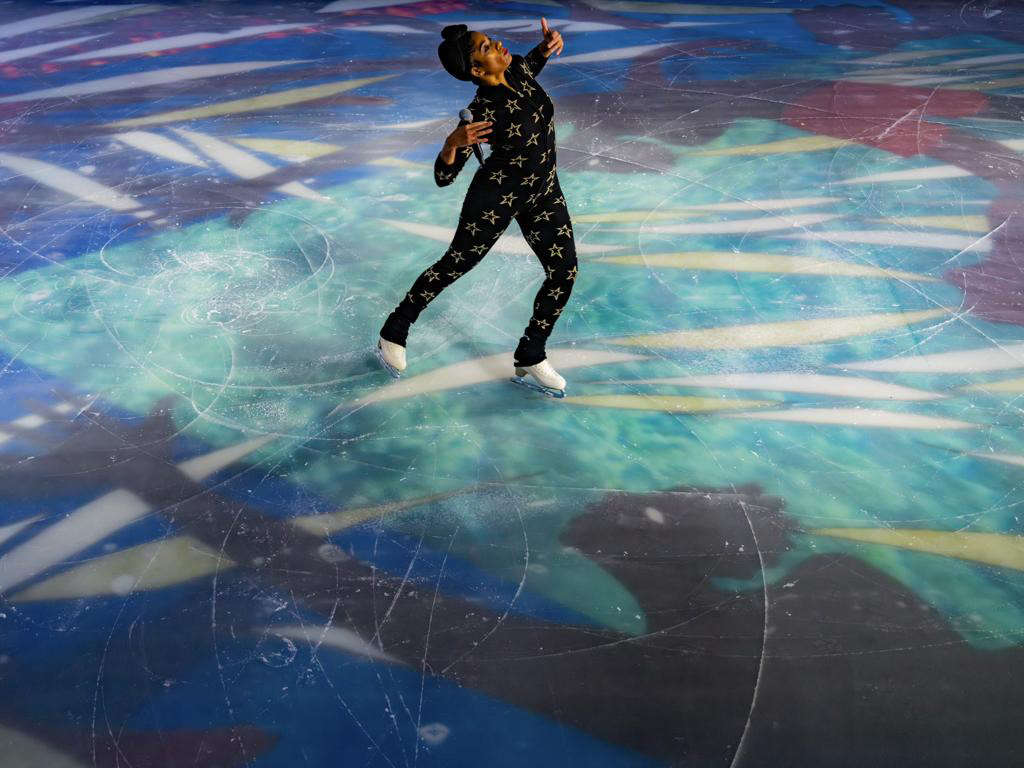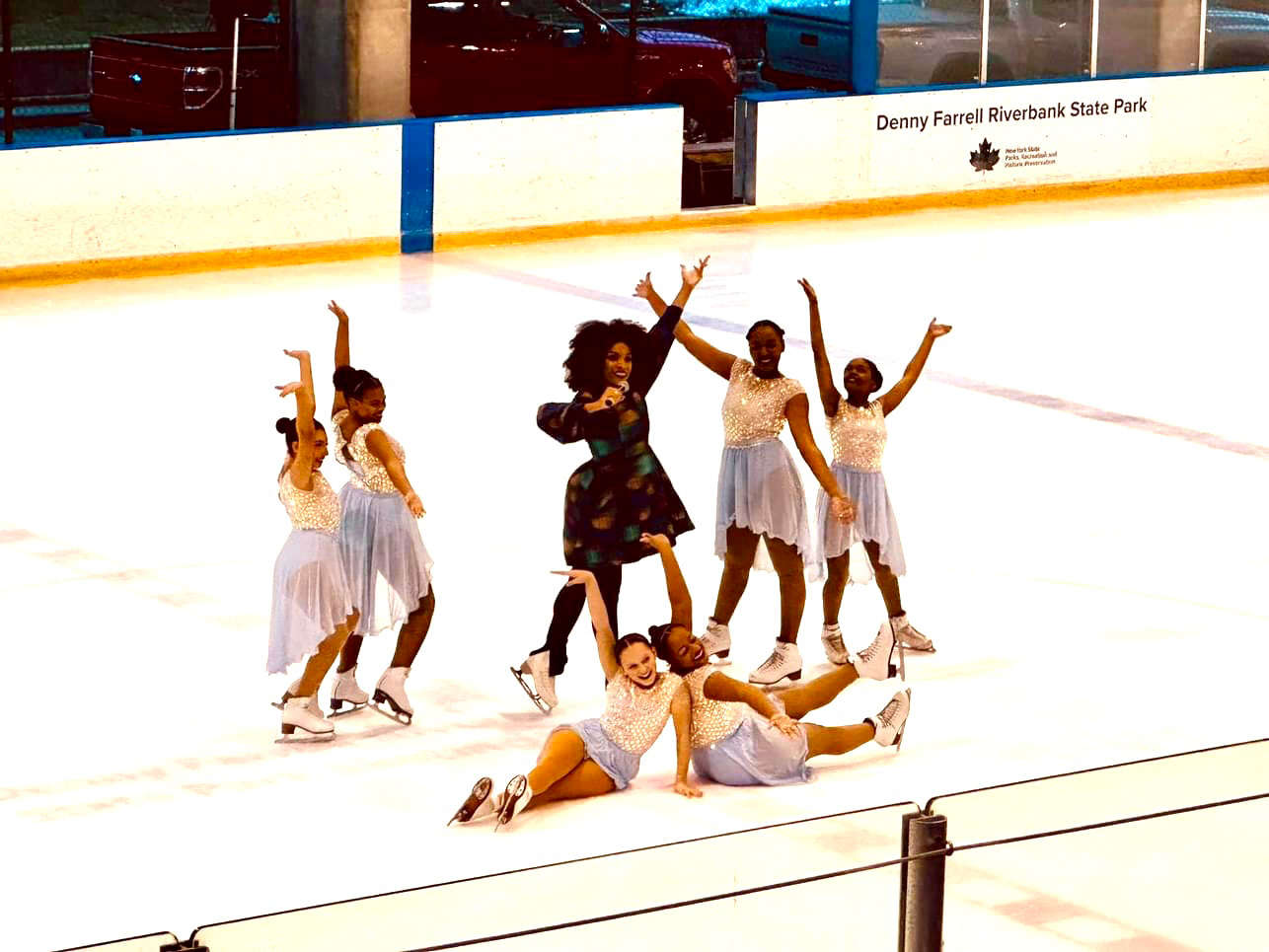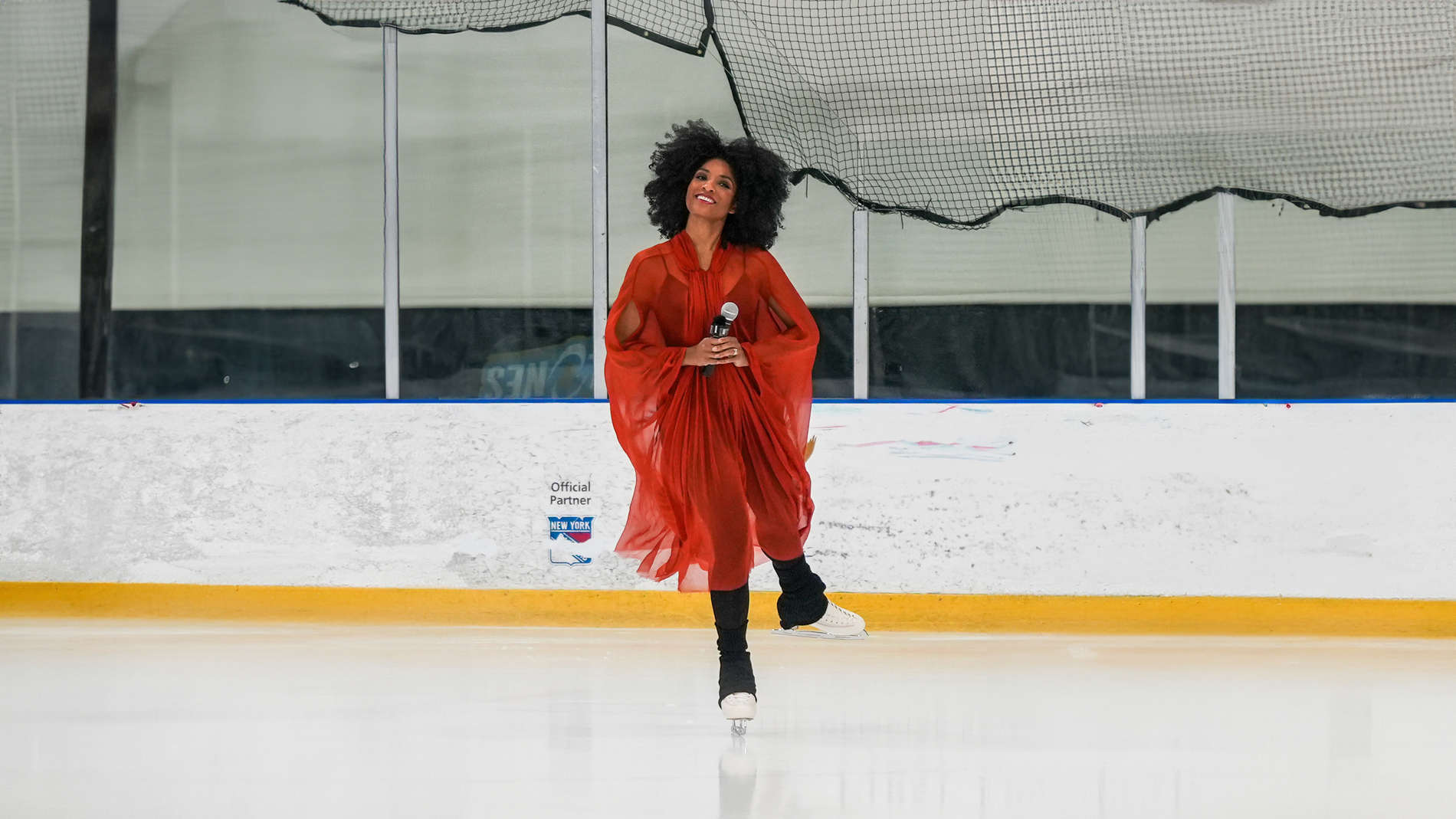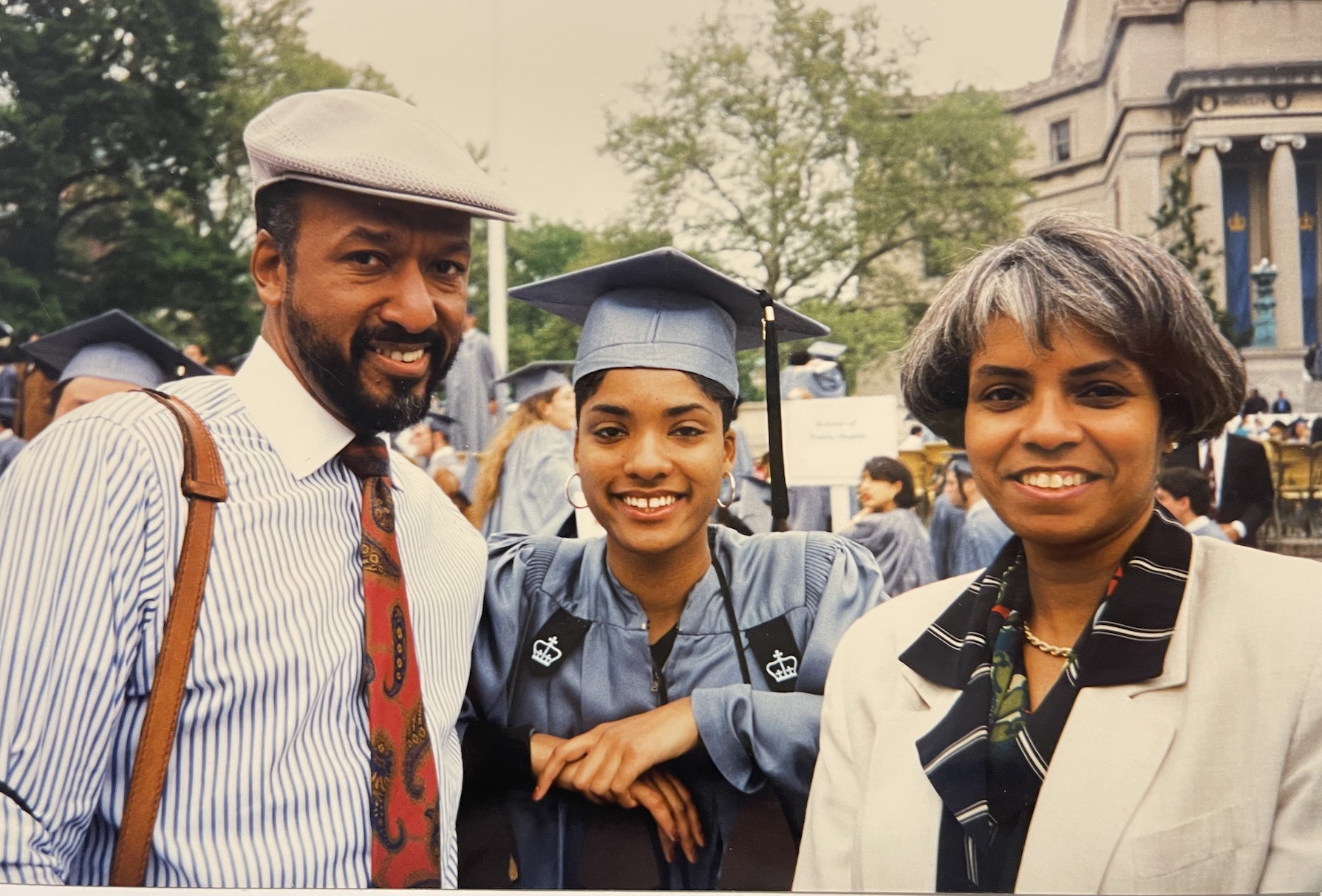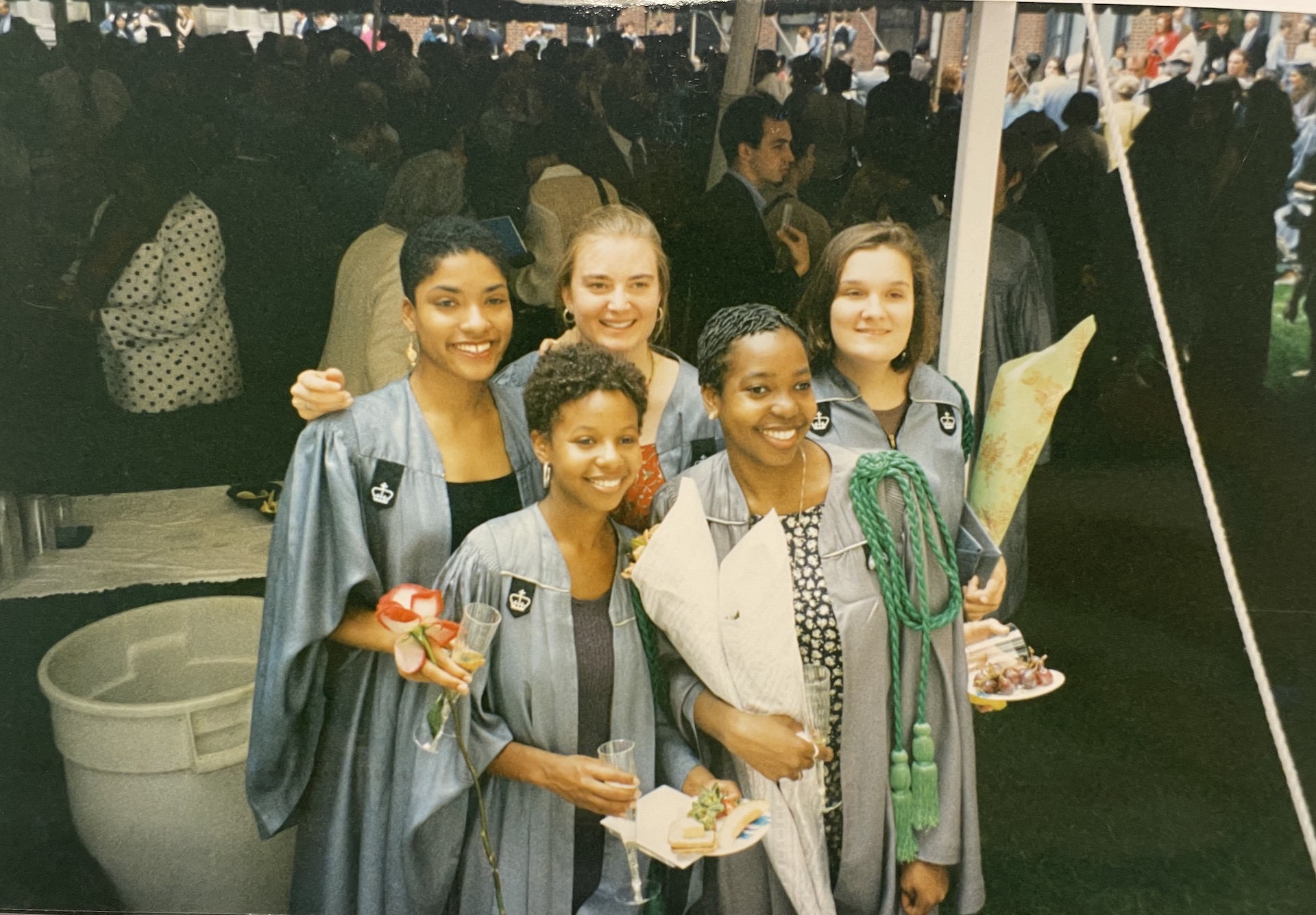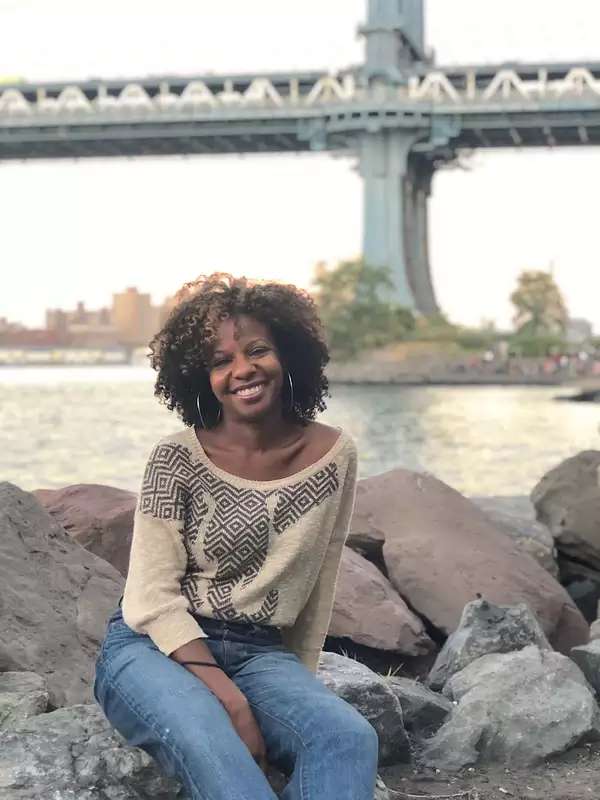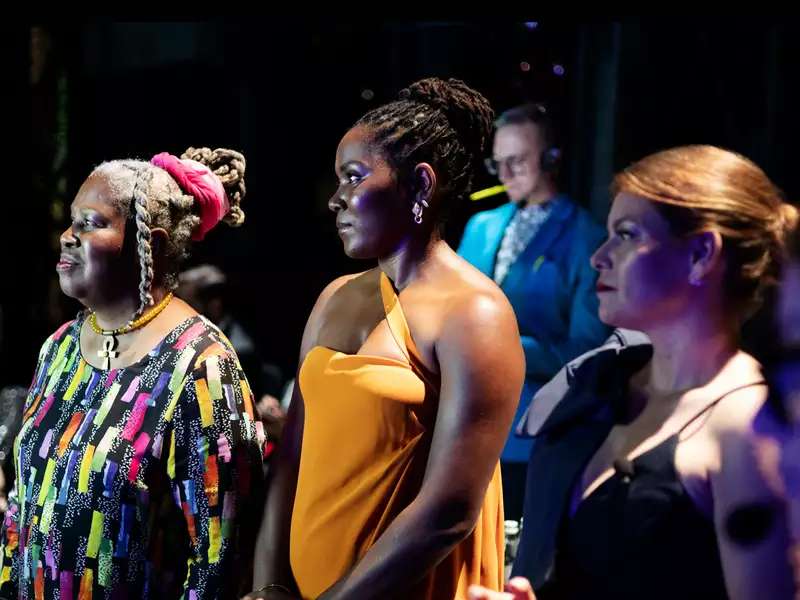
For the average person, the idea of professionally singing classical music, such as Carmen, is an extraordinary one. The same idea holds true for being able to figure skate well. Combine the two and what exists is the audacious alchemy of Alicia Hall Moran ’95.
“I feel a sense of responsibility and excitement about keeping two trains running,” said the mezzo-soprano and figure skater. “If you’re a Black woman and you say that you sing, nobody’s shocked; there’s no resistance.” But say that you’re a Black woman who sings beautifully while ice skating, and people pay attention. Her multilayered opera productions, like 2023’s Coldblooded and 2018’s Breaking Ice: Battle of the Carmens, have left audiences and critics stunned, with Hall Moran said to bring “a different kind of athleticism” to a “musical fantasy for the concert stage.”
On March 16 and 17, at the annual ice show of the nonprofit organization Figure Skating in Harlem — self-described as the only organization to combine education and figure skating for girls of color — Hall Moran will take center stage to sing a song from the musical The Wiz, in keeping with the show’s Oz-centered theme. The following month, at its gala on April 17, Figure Skating in Harlem will recognize Hall Moran for her work as a volunteer skating instructor. “It’s been transformational for me to make an alliance based on place with an organization that’s structured in a way where it matters that I show up as soon as I show up,” she said.
Expanding the Opera Experience
Hall Moran premiered her first skating show in 2016 at National Sawdust, a women-led venue in Brooklyn, but the world of cold-weather athletics — and the creation of unexpected ideas coming together — was already in her DNA. Her father, who was born and raised in segregated Oklahoma City and who died last January, taught Hall Moran the art of cultivating as many different interests as possible in one lifetime, which he did as a young activist fighting for civil rights. As a professional, he worked as an investment banker on Wall Street while honing a lifetime love for sailing and skiing.
“My skating, culturally, is in the lineage of that,” said Hall Moran, about her dad. “What do you do when you have earned your civil rights to enter a space?” Her answer: everything that can possibly be done.
Since graduating from Barnard in 1995, Hall Moran has shown how best to make use of her creative time: In 2012, she debuted on Broadway in the Tony-winning revival of The Gershwins’ Porgy and Bess. She has collaborated with iconic visionaries, such as visual artist Carrie Mae Weems and choreographer Bill T. Jones. She has paid homage to Detroit’s legendary record label with the motown project. And she has honored the people who have most inspired her with the indoor ice show Breaking Ice, which is about the U.S.’s figure skater Debi Thomas’ rivalry with East Germany’s Katarina Witt, stemming from both performing to Carmen at the 1988 Calgary Olympics, and Black Wall Street, in recognition of her father’s work on Wall Street and the 1921 Tulsa Race Massacre, which resulted in the destruction of what was known as “Black Wall Street.”
“I’m always busy with something that is just unusual enough that if you don’t look closely at it, you might not understand what to do with it,” said Hall Moran. “A lot of my work looks ideologically explosive because I don’t trust that the doors are going to stay open. I don’t even trust that the lights are going to stay on the whole time I’m doing the thing.”
Much like skaters who seek out new challenges after mastering a triple axel or a tuck spin, Moran Hall weaves her musical and athletic talents together to expand her storytelling and her audience’s expectations.
From Barnard to Breaking Ice Narratives
Figure skating and singing are not new for Hall Moran, who practiced both, albeit separately, throughout her high school years in Stamford, Connecticut. She was a member of an off-campus synchronized ice skating team and performed with her school’s advanced chamber ensemble, the Westhill Chamber Singers.
Growing up in Stamford, just 40 miles from New York City, Hall Moran knew she wanted to major in music at Barnard — “the best school in New York City,” she said — and applied for early admission.
“They said if you get a liberal arts degree, you're going to be okay. If you learn to write, read, analyze, and discuss, you can do anything well from that point,” she remembered. “And I believed what they said.”
Choosing a form of vocal expression that required a lot of schooling suited Hall Moran, who earned two bachelor’s degrees: one in music from Barnard and another, after graduation, in classical vocal performance from the Manhattan School of Music to better learn the basics of operatic repertoire and technique. The way Hall Moran saw it, Barnard validated her and gave her the forwardness that she has continued to cultivate since her time on campus, thanks to having been surrounded by focused women to whom she felt she never had to explain her boundary-breaking aspirations.
“No one at Barnard is aloof. There was no such thing,” said Hall Moran, who received the Distinguished Alumna Award in 2020. “I found there to be no performance of those traits of negative feminism. Smart women never impacted my life in a bad way.”
Anyone who gets to see Hall Moran perform should feel the impact of her two trains running. Whether she is performing off the ice — as she did in January at Queen Elizabeth Hall in the U.K. or will do on April 10 with the Philadelphia Chamber Music Society — or performing on skates with a musical quartet backing her up, Hall Moran has places to go and audiences who can’t wait to see what’s next.
To see where Hall Moran will next perform, visit her website or follow her on Instagram.
